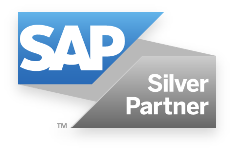Small businesses need to think bigger than a traditional ERP system

Enterprise Resource Planning (ERP) software has been around for a while now. So there’s plenty of choice when it comes to picking a system for your business.
However, it’s vital for growing businesses to understand that not all products stand equal—and ERP itself has evolved beyond the traditional approach. Smart companies who do their research will realise that they need to think bigger than a conventional ERP in order to stay competitive both now and in the future.
How ERP has helped businesses in the past
ERP software has been around for over 25 years now and is used by businesses to manage a wide range of facets of their organisation. Anything from sales to supply chains and financial information, all tied into a single package—where the consolidated data and automated processes helps staff minimise errors, improve efficiencies and save time and money across the board.
What do we mean by a traditional ERP?
You might already be familiar with the idea of traditional ERP systems, such as those in the distribution sector. Here they are typically on-premise solutions used to run aspects of a business like inventory control, accounting, order entry and purchasing. The system allows staff across the organisation to more easily manage their own parts of the business, all with greater emphasis on visibility. And the hardware and software is all located within the business, so there is greater control – and responsibility.
{{cta(‘d7359d0c-074d-437d-a4af-ca65b552c99c’)}}
Why traditional is no longer an option
Unfortunately, along with that control comes a whole host of limitations and issues. For example, convential ERP systems generally have a long lead-time for implementation, can be expensive to configure (and reconfigure), and might not be able to offer the functionality growing businesses need in 2016.
Plus on-premises solutions are typically inflexible, in that all the information is stored on-site—meaning they can’t support mobile or remote working. With International Data Corporation predicting that by the end of 2015 some 1.3 billion people – or 37% of the workforce – will be working remotely, this presents a major issue for businesses going forward.
ERP vs accounting software
It’s been said in some quarters that traditional ERP is dead and has been replaced (or at least overtaken) by business management software. But in reality modern ERP systems are simply the natural evolution from the traditional solutions we’re so used to working with.
The only difference is that they’re breaking free from the shackles of the traditional on-premises systems and giving us more functionality and freedom than ever before.
Modern ERP systems now offer:
- Faster implementations — within days and weeks, rather than months and years.
- Greater flexibility — traditional ERP software hasn’t always been the easiest to configure, but thankfully you will no longer have to change your business processes to fit the software. Rather the software can be configured to complement the way you work.
- Support for mobile and remote working — a move to cloud hosting and Software as a Service (SaaS) was inevitable, giving staff the freedom to work wherever and however they need. Which is crucial for the growth of any small business
So if you’re a small business looking for ERP software, make sure that you think big — and futureproof yourself with a more modern system like SAP Business One.
Of course, if you’ve already made your choice, you’re probably now wondering what you need to know about implementing such a modern system – and succeeding. {{cta(’75a275ac-60e2-4c6a-95e2-4b9aa782797a’)}} to find out today
{{cta(’15d75a0f-4734-40bc-9a7f-9b02c93f0951′)}}

